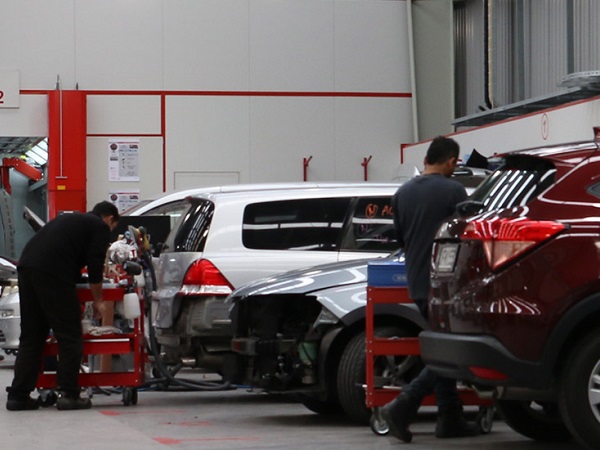Severe rain and weather: If you are a Vero customer and need to claim, fill out our online claims form Claims | Vero or contact your broker.
Vero Voice Blog
Anybody home? 5 tips for insuring an empty house
By Richard Godman
Manager Technical Underwriting, Consumer Insurance
1 June 2023
Residential properties are usually safer when someone is living in them. It’s less likely that someone will break in, or will cause malicious damage, or that the home will be extensively damaged by floods, storms, fire or animals (if someone is there to help protect the home). If damage does occur, someone living in the house will spot it and be able to clean it up quickly.
That’s why most insurance policies specify that residential properties must be occupied.
But there are a few reasons your property might be empty for a long period of time:
- The house is on the market, and you’ve moved out
- It’s a rental property and you’re between tenants
- You’re renovating your home
- It’s a holiday house
- You’re away from home travelling
- You’re undergoing medical treatment
If your property is empty for any reason, it’s important that you understand any occupancy requirements in your insurance policy, and how to maintain your cover.
Whatever the reason your house is vacant, it’s important that you check your House Insurance policy and contact us if your circumstances change. Your home is one of your most valuable assets, and we want to help you make sure it’s protected.
5 tips for keeping an empty house covered
| 1 | Check unoccupied property clauses Take a look at your policy to see what the definition of ‘unoccupied’ is. For Vero policies, your home is considered unoccupied if no authorised person has slept overnight in the home within the last 60 days. |
| 2 | Understand when your home will be considered 'unoccupied' Sometimes your cover will depend on whether the house is normally empty (usually no cover or very limited cover), or whether you usually live there but are away for a while (say you're on holiday for up to 60 days). Some insurance policies allow longer periods of unoccupancy, for example, Vero customers who normally live in their homes get some extra time – you’ll be covered if your home is vacant for up to 90 days, if you are away travelling or for medical reasons. |
| 3 | Adding cover for unoccupied properties If you’ve got a holiday home, you’re renovating or you’re between tenants at your rental, and your home will be vacant for a period of 60 days or more, you’ll need to contact your insurance company to notify them. You’ll need to explain why the home is empty and your insurance company will need to agree to cover it. If they agree, they may apply additional terms. |
| 4 | Policy conditions for unoccupied properties If your home is considered ‘unoccupied’ there might be conditions that you need to meet to maintain your cover. Normally it’s things you’d do anyway to keep the house secure - like locking your doors and windows or turning off the water mains - but it’s important that you meet any specific terms like keeping your lawns tidy and clearing your mail. Anything you can do to make your home look lived in will help to protect it. You could even install timed lighting or ask a neighbour to park their car in your driveway. |
| 5 | Additional excesses Some policies will include a higher excess if the home was unoccupied at the time of loss, or the insurer will impose a higher excess when you advise them the your home is unoccupied. It’s a good idea when purchasing or comparing cover to find out what your excess is in different circumstances. |
Want more information?
For more information, see Vero's House insurance options here. Or if you're ready for expert insurance advice, contact a broker or adviser.
The information in this article has been compiled from various sources and is intended to be factual information only. Full details of policy terms and conditions are available from Vero Insurance New Zealand Limited or your financial adviser. For advice on product suitability, please contact your financial adviser. While we take reasonable steps to ensure that the information contained in this article is accurate and up-to-date, it is subject to change without notice. Vero Insurance New Zealand and its related companies does/do not accept any responsibility or liability in connection with your use of or reliance on this article.



